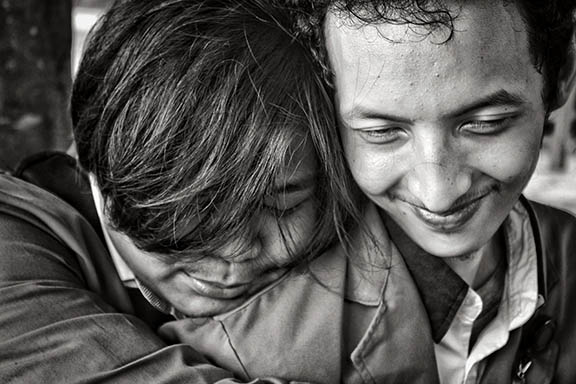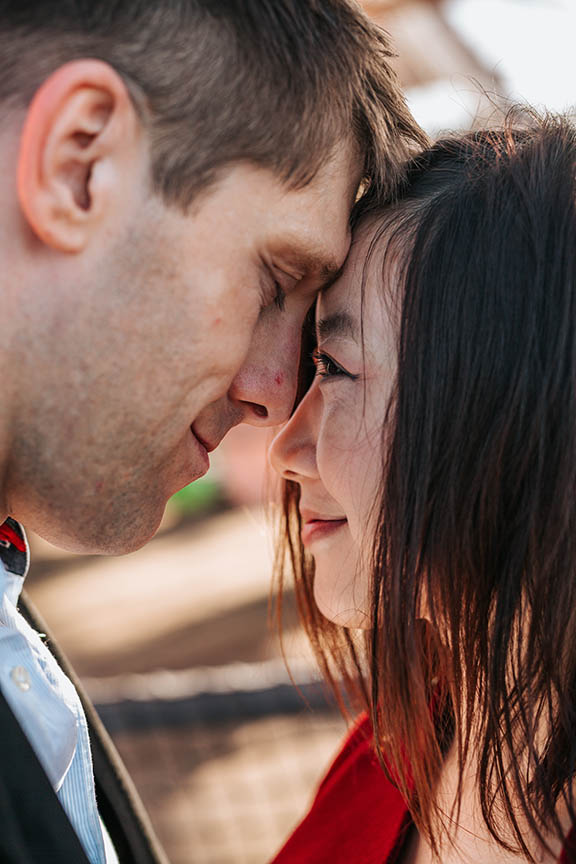 This life-enrichment program is an opportunity to develop a stable mindful presence and an experiential understanding of key aspects of relationship-building. The expected fruits of this program include not only a strengthening of one's connections with others but also a deeper understanding of oneself.
This life-enrichment program is an opportunity to develop a stable mindful presence and an experiential understanding of key aspects of relationship-building. The expected fruits of this program include not only a strengthening of one's connections with others but also a deeper understanding of oneself.
The process of working through this program can transform participants' relationships with their family, friends, significant partners and others. Through the gateway of relationships the program encourages participants to shift to a more healthy and rewarding lifestyle.
Cutivating Healthy Relationships is grounded in an engaging combination of mindfulness training practices, cognitive understanding and experiential knowing. Mindfulness training practices include sitting meditation, eating, walking and conversation meditation (e.g., Insight Dialogue), combined with the embodied mindfulness practices of breath awareness, yoga and Qi Gong. Upon this foundation of mindfulness, which will receive significant attention in each class, will be built a cognitive and experiential understanding of what impedes relationships work and what fosters connection.
We will draw from several exciting areas of research including Social Engagement System (Stephen Porges), Emotional Connection (Sue Johnson), Attachment Theory (Dan Siegel), Trauma Theory (Bessel Van der Kolk) and Somatic Psychology (Peter Levine). An common aspect of each of these theories is that they explore an important piece of the relationship puzzle. Together, they provide a comprehensive map of how to consciously engage with someone not only for the relationship, but also as an effective path to emotional, psychological and personal growth.
Intimate relationships is an area of interest and concern for most adults, and we'll take some time to look closely into intimate relationships through the research of John Gottman, David Schnarch and Gary Chapman. And while this material directly addresses issues within intimate relationships, the concepts and models clearly apply to other interpersonal relationships that fill our days at work and at play.
Participants will be provided reading and links to video materials about these theories and will be encouraged to study only as much as they wish. The daily "homeplay" mindfulness practices, combined with the in-class experiential exercises and group and dyad processes, provide critical keys for understanding the relationship dance. By investing a few hours a week, participants can get a general idea of research findings, what works and what doesn't, and how this understanding can be applied to establishing and maintaining healthy relationships of any variety. All the while, we will be cultivating the core skills of mindfulness - a settled and concentrated mind, ability to attend to present moment reality absent of reactivity. A fruit of this engagement can be a broader, more open and curious perspective on the many challenges and opportunities found in relationships and elsewhere in life.

Foundations of an Effective Mindfulness Program
• Cultivation of mindfulness. "Mindfulness” can be defined as being aware of what’s happening within and outside of the body/heart/mind without adding the usual overlay of judgment, commentary or decision making. This allows fear, anxiety or confusion, which so often result from such internal dialogue, to be avoided. As the foundation of Cultivating Mindful Relationships, the cultivation and stabilizatiojn the skill of mindfulness is woven into many aspects of the program.
• Shift of perspective from narrow (constricted, isolated and urgent) to open (expansive, connected and relaxed). Ordinary objects (e.g., raisins) and practices (e.g., awareness of breathing and stretching) in nuturing (mindful, calm, quiet and focused) environments combined with pointing out instructions and illustrations (old woman/young girl) and inspirational writings (poetry) offer glimpses of a broader perspective and deepen capacity to shift between narrow and open focus.
• Ability to detect subtle bodily sensations including minor tensions and contractions associated with reactive patterns/habits/emotional triggers. This allows for a quick periodic check-in throughout the day and especially during stressful times, so that relatively minor tension can be released to prevent physical and emotional tension from accumulating. Emotional triggers can be identified so that skillful responses can replace mindless reactivity, which allows a shift toward healthy and productive choices. This skill is developed, deepened and stabilized by using eating and walking meditation, the body scan, Hatha yoga and Qigong practices within a supportive group context.
• Ability to rest in discomfort with equanimity and maintain a clear/focused mind, relaxed body and open heart. This skill is developed cognitively by working with uncomfortable thoughts, feelings, and bodily sensations. (As participants experience them; none are intentionally induced as part of the program.) Participants are encouraged to relax in the presence of such discomforts and to gently move their attention toward them. These practices provide potential for insights into how conditioned reactions to minor discomforts underlie much of our suffering and unskillful reactions to the people in our lives. These insights often encourage participants to deepen their commitment to a daily mindfulness practice.
• Capacity for establishing a trusting interpersonal connection.  This is clearly an important aspect of our Cultivating Mindful Relationships program and also a core element of our other mindfulness training programs. The facilitators create and hold a safe space in which participants feel comfortable in sharing their struggles, failures and successes in establishing their mindfulness practice. The importance and power of being open, honest and vulnerable is highlighted. There are small group and dyad exercises in which participants first meditate together and then share an experience, for example, a time when they felt most alive, honest or integrated. Periodically, during this exercise, a bell will signal them to check-in internally and become centered before re-engaging with their partner. Such guided communication activities help cultivate the capacity to establish and maintain an inner stillness throughout a conversation, which invites one to listen and speak from their most authentic and integrated self.
This is clearly an important aspect of our Cultivating Mindful Relationships program and also a core element of our other mindfulness training programs. The facilitators create and hold a safe space in which participants feel comfortable in sharing their struggles, failures and successes in establishing their mindfulness practice. The importance and power of being open, honest and vulnerable is highlighted. There are small group and dyad exercises in which participants first meditate together and then share an experience, for example, a time when they felt most alive, honest or integrated. Periodically, during this exercise, a bell will signal them to check-in internally and become centered before re-engaging with their partner. Such guided communication activities help cultivate the capacity to establish and maintain an inner stillness throughout a conversation, which invites one to listen and speak from their most authentic and integrated self.
• Openness to emotional healing, personal & Spiritual growth. Mindfulness practice brings one’s focus to the arising of sensations and contractions within the body thereby avoiding becoming hijacked or overcome by random thoughts or powerful emotions. A shift to a more open, curious perspective allows an interruption of the chain of reactivity that gives the emotional and physical energy room in which to rise up, be witnessed and owned, and processed and released. This natural self-healing process is often appreciated as another helpful fruit of regular mindfulness practice.
Program Formats: The Cultivating Mindful Relationships program is regularly offered in both a weekday evening - six, 2 hour sessions, and a weekend day - four, 4-hour sessions, format. When it is offered on a weekend, it is generally with meetings held every other week. Other arrangements can be easily made for groups or organizations who want this program delivered exclusively to their members in a private setting (e.g. full weekend, residential program, on-site multi-week training).

• Materials: As with our traditional MBSR programs, there will be weekly readings, YouTube videos, a collection of 8 or 10 guided meditations, Qi Gong and gentle yoga recordings and practice suggestions that tie the program together. Participants learn about these supportive activities, practice them at home and refine them in the next session.
• About the Facilitators: John Shealy, PhD, and Jordan Dye, CSW, are a married couple who together have over 45 years of experience practicing and teaching mindfulness meditation. Both currently practice Integral Zen. John is a licensed psychologist. Jordan is a certified social worker. Both are trained yoga instructors and live a healthy, balanced lifestyle. The safe, respectful, peaceful space they hold for each other and for the group provides a container for establishing a daily meditation practice while promoting personal and relationship transformation.
• Class size: Due to the experiential and intimate nature of this program, class size is limited to 20 participants.